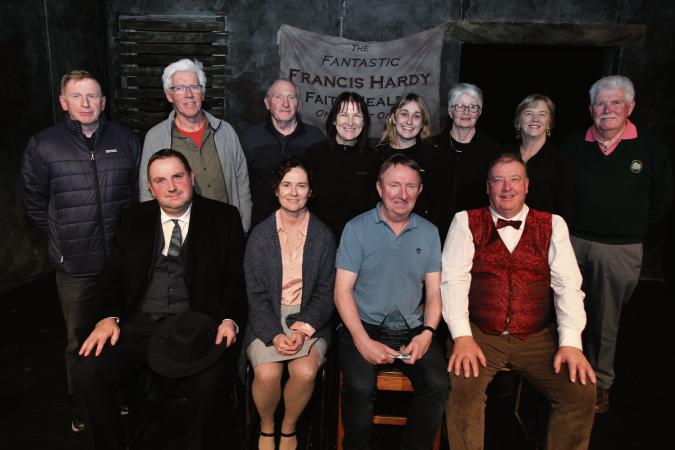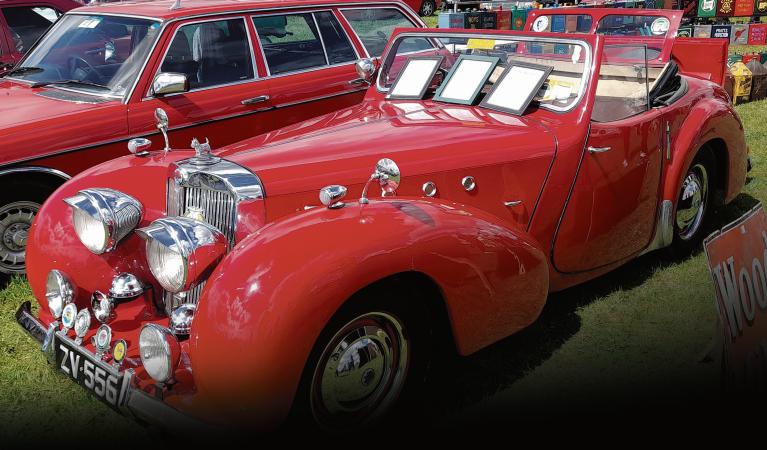Innovative project helps Galway’s primary school kids to become authors
Published:
-
-
Author: Bernie Ni Fhlatharta
~ 6 minutes read
From this week's Galway City Tribune
More and more primary school children have become published writers in Galway City and county thanks to an innovative project that is involved in mentoring.
The Fighting Words programme started in Dublin fourteen years ago but has since expanded to almost every city and county in the country. One of its founders is the writer, Roddy Doyle.
It was embraced in Galway in 2019 under the auspices of the Galway Arts Centre but, obviously, lost momentum during the pandemic years.
However, it has since recovered momentum and is so popular that last year, the project was nominated for the Galway City Mayor’s Awards.
Though they didn’t win, everyone involved was thrilled with the nomination. They also believe that the children who’ve participated so far are all winners anyway!
Though the Dublin-based project covers both primary and post primary schools, the Galway one only offers it to primary schools for the moment – partly due to the shortage of volunteers required to cover all schools.
Despite that, Fighting Words has managed to give workshops to quite a number of schools, mostly in the city, as well as a few lucky ones elsewhere like Tuam and the Conamara Gaeltacht.
Karen Arnold, its current administrator, explains that as it is, there’s quite a long waiting list for the Fighting Words workshops, such is the demand.
That demand has come on the heels of the positive feedback from the participating pupils, their teachers and their parents.
This year’s programme kicks off this month with the start of the school term and in the next few weeks, Karen will be reaching out to schools on the waiting list to organise their workshops.
Each school is then invited to a one-and-a-half to two-hour workshop in the Nuns Island centre where mentors and volunteers help pupils concoct a story with illustrations.
These trained and vetted mentors (volunteers also have to be Garda vetted), can kick off the story with a suggestion – either a scenario or character which more often than not comes from the imaginative children.
A facilitator will first address the group to explain how it’s all going to pan out. There’s also a bit of chat with the group about their favourite books, the characters they like best etc.
Karen stresses that the workshops work due to good teamwork and that the groups of schoolchildren appear to really enjoy composing the stories and directing the illustrations.
A typist – a volunteer – types up the story as it is agreed on. There is no limit on a story and can be short or long, depending on the pace of the workshop and when the team agree on content.
The story progresses while some of the children help illustrate the characters for the story. Once the story is finished, a title is chosen, which is often the most hilarious part of the workshop!
When that’s all done, the story is later (maybe a week or two) laid out in book form and each of the pupils get their own PDF and illustrated copy as a keepsake.
The book also credits all of the children’s names, making them all published authors!
“So, the emails are being sent around to schools now and it’s first come, first served as we have a waiting list. However, this year, we are ensuring to reach out to those schools who have been a while on the waiting list,” Karen explains.
It’s a free workshop, though the school – along with parents’ help – have to organise getting the children to Nuns Island.
“We do have templates for stories, but a story could emerge organically from the children themselves. It varies in each workshop. The template is a starting point and helps build characters by finding out what is their greatest wish or greatest fear.
“The final version is read out at the end to ensure they are happy with it. It’s all very democratic and great fun,” adds Karen.
She stresses the need for more volunteers and asks people who are interested to apply through the Fighting Words website, which is also a platform for all the stories published so far.
The training for volunteers can be done in person in Dublin, or online.
Once schools express their interest in the new workshops, registered and Garda vetted volunteers in the locality are contacted. Volunteers are not committed to a time limit and can do just one or two workshops a year.
Fighting Words, according to its website, “is a means of self-expression to promote creativity and writing as a fun and powerful means of expression.”
The stories published on the Fighting Words website include tales of aliens, lost teddys, and other imagined planets as well as young love, summer holidays and teenage dreams among the tales written by older pupils.
As it is a free facility and does not receive any State funding depending on volunteer tutors, it is currently unable to meet the demand.
A report published last year and compiled by CREA, School of Education Studies in Dublin, has acknowledged the invaluable contribution the project has made in the education life of about 10,000 students, but concludes it has disappointed many more due to lack of resources. The report concludes that the Fighting Words programme would be a suitable short course that could be included to the proposed revised Junior Cycle English curriculum.
Such was the interest and the success of the past two years’ workshops in Galway that Megs Morley, the Director/Curator of the Galway Arts Centre nominated the project for the Galway City Mayor’s Award.
And who knows, how many future authors will evolve and credit a Fighting Words workshop for lighting the fire of written creativity within them.
For Karen, Megs and all those involved in the Galway project, that indeed would be the icing on the cake – but for now, they and the children are enjoying every minute of creating stories.
(Image: an illustration from ‘Look Our for Pat Casey’, the story by 3rd Class at Galway Educate Together National School in Newcastle)
More like this:

Frustration over “red tape” stunting rollout of electric vehicle charge points across Connemara
There’s immense frustration in Connemara over the continued lack of electric vehicle charge...

Man in his fifties missing from Gort found safe and well
A man in his fifties missing from Gort has been found safe and well. 56-year-old PJ Reilly had be...

Curtain comes down on DADS Faith Healer
The curtain came down on Dunmore Amateur Dramatic Society’s award-winning production ‘Faith Heale...

Crowds descend on Kiltulla & District Vintage Club’s annual extravaganza
The skies were sunny as the crowds gathered for the recent Kiltulla & District Vintage Show –...

Clifden District Hospital set to re-open on Monday
Clifden District Hospital, which closed temporarily at the end of February is set to re-open on M...

Record numbers expected this weekend at Fleadh Cheoil na Gaillimhe in Claregalway
Record numbers are expected in Claregalway this weekend for the Fleadh Cheoil na Gaillimhe 2024. ...

Galway farmers to take part in Lidl new sustainable beef programme
20 Irish beef farmers from Galway, Cavan, Longford, Meath, Roscommon, Westmeath and Wexford have ...

Eamon Ryan says solutions to traffic chaos in Galway cannot be decided in Dublin
The solutions needed to tackle the traffic chaos in Galway cannot be decided in Dublin, and can o...

Claddagh Watch secures five-year funding partnership with leading company
Claddagh Watch has secured a five-year funding partnership with a leading Irish company. UTS Tech...
Sign Up To get Weekly Sports UPDATES





